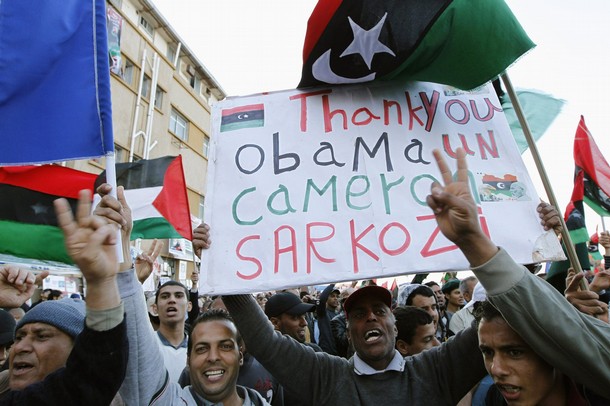
From Roger Cohen, the New York Times: It will be two decades next year since the outbreak of the Bosnian war — and since the debate on interventionism began to rage, becoming one of the most acrimonious moral questions of our times. Now Libya, a successful Western intervention, will be placed on the scales. . . .
Like many of my generation, I became an interventionist in Bosnia. Sickened by carnage, and by the lies and ignorance of Western politicians who prolonged the carnage, I understood that caution — or more accurately hypocrisy masquerading as prudence — can be as criminal as recklessness. . . .
NATO finally bombed Serbian positions in 1995. The war ended soon after. The alliance bombed again in Kosovo in 1999. Soon after, Slobodan Milosevic’s murderous dominion ended. Western intervention in a cruel war in Sierra Leone led to the end of that conflict. Liberal interventionist had become the proud badge of a generation discovering the good war. . . .
The [Libya] intervention has been done right — with the legality of strong United Nations backing, full support from America’s European allies, and quiet arming of the rebels. The Libyan people have been freed from a crazed tyranny. Unlike in Iraq, burdens were shared: America flew the intelligence missions and did the refueling while the French, British, Dutch and others did most of the bombing. Iraq was the wrong prism through which to look at Libya. I’m glad I resisted that temptation. Another cycle has begun.
In the end, I think interventionism is inextricable from the American idea. If the United States retreats into isolationism, it ceases to be itself — a nation dedicated, however much it falls short, to a universalist ideal of freedom.
There are no fixed doctrinal answers — a successful Libyan intervention does not mean one in Syria is feasible — but the idea that the West must at times be prepared to fight for its values against barbarism is the best hope for a 21st century less cruel than the 20th. (photo: Reuters)
Image: reuters%204%2014%2011%20protestors%20thank%20sarkozy%20obama%20cameron_0.jpg
